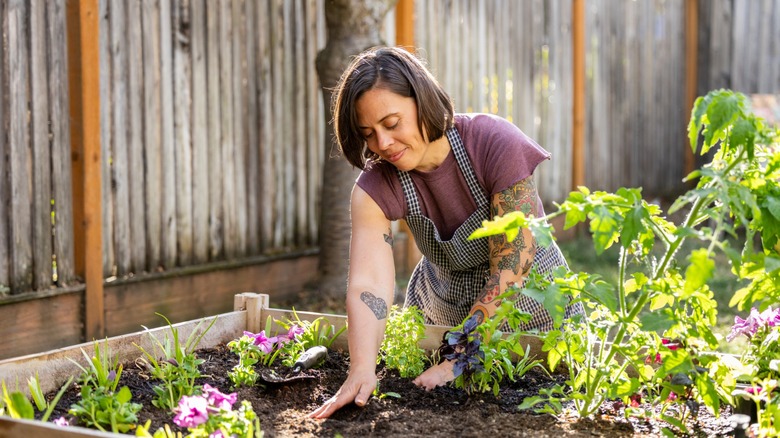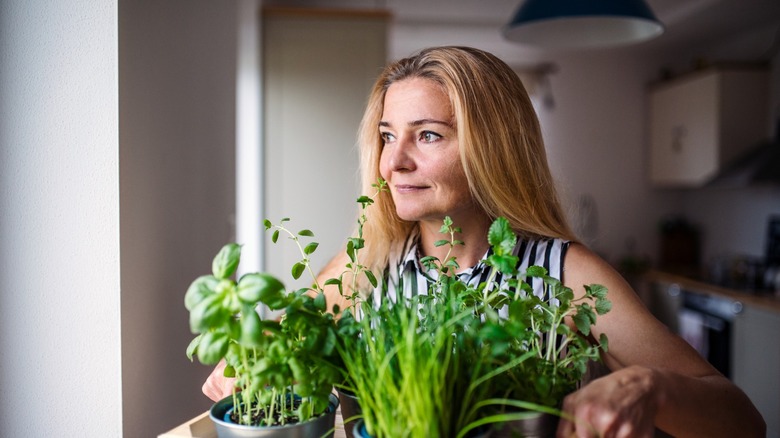How To Prep Your Herb Garden For Winter For A Year-Round Harvest
We may receive a commission on purchases made from links.
With cold weather looming, now is the time to start thinking about overwintering your gardens. Spring may be the time to turn store-bought strawberries into the perfect garden starter, but we are at the part of your garden's annual life cycle where, for most plants in cool climates, growth ceases for the winter and you focus your energy on ensuring your perennial plant babies last until warmth returns. While you can substitute dried herbs for fresh pretty easily, you may be interested in learning how to maintain your herb garden through the late fall and winter months so you can enjoy its bounty year-round.
Winterizing your herb garden is a process by which you cut plants short and bury them under a protective layer of mulch or dirt to keep them toasty outdoors, but moving your herbs inside to a sunny window can keep them more or less happy until they can go outside again. While some herbs simply won't tolerate being taken indoors, the easiest way to guarantee you enjoy fresh herbs all year is to replant others into a pot and bring them inside before the first frost hits.
Your rosemary garden, for instance, needs some careful attention, but if you know the right way to harvest this fragrant herb, you can enjoy Italian classics all winter long. Basil, parsley, and mint are all other common garden plants that will be happy indoors with the right temperatures and watering. Your first step is to research the needs of specific plants, since different species usually all need something unique.
What should you know about bringing your herbs inside for the winter?
One of the keys to successful temporary transplantation of your herbs is to prevent replanting shock. To this end, dig up the root ball and set it in the soil of its new home, then leave the pot outside for a few days so that the plant can gently acclimate at the same temperature. After that period, you can bring it inside. You will need to make accommodations for your central heating system if your plants will be living in a vented room, since HVAC systems can dry them out a lot quicker than if they were outdoors. Carefully monitoring your plants' needs on a daily basis will be critical to keeping them alive. Many plants love humidity, which can be in short supply with indoor heating, so consider an inexpensive (but effective and well-rated!) Dreo humidifier that's perfect even for large rooms.
Don't make the mistake of thinking you can plonk all your herb plants in the same location and call it a day. Different herbs need different sun exposures, meaning your partial-sun plants won't be happy in the same windows as your full-sun babies. Luckily, most popular herbs (like tarragon, chives, mint, basil, and rosemary) can't get enough sun, so, depending on your mix, this may not be an issue. If the climate in which you live is particularly dreary in the winter, you may want to consider a couple of supplemental LED grow lights to keep your herbs thriving.

